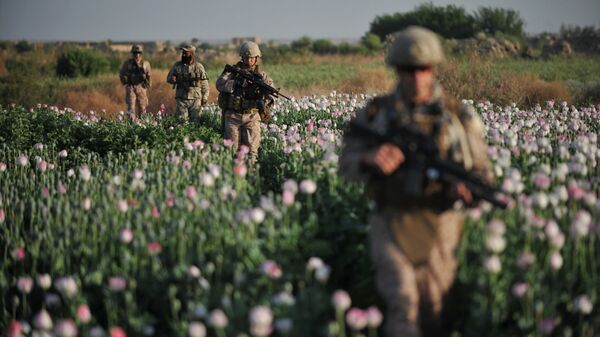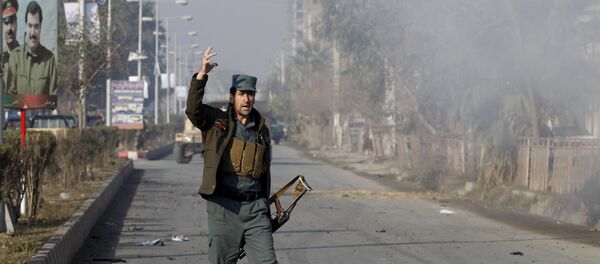Taliban representatives were not invited to the talks. Earlier they vowed to talk only to the US and not to the Afghan government. The Taliban has stepped up its insurgency since the withdrawal of NATO-led combat troops from Afghanistan a year ago and the country’s armed forces seem to have failed to counter the group’s advance.
Thomas Rutig, co-director of Afghanistan Analysts Network, told Radio Sputnik that in order to end the 14 year-old war, there is a need for comprehensive talks, which would involve major players in the region.
“Since the withdrawal of NATO troops I think a major factor is that the battle field has become more open and the Taliban and other small insurgent groups have more room to maneuver. They have transformed it into territorial gains. The biggest success of it was the taking of the provincial capital of Kunduz in Northern Afghanistan for two weeks last year. Eventually the Afghan forces with the help of foreign troops managed to win it back but it is a continuous process in which the Taliban have managed to operate for many years now,” Rutig told Sputnik.
He further spoke about ghost troops in the Afghan army, (people on the payroll but who do not carry out their jobs) “Ghost troops don’t only refer to soldiers but to police, para militia groups etc. This affects the ability to fight. These commanders are pocketing the money and it is an issue of corruption. Western governments have ignored this issue although they know of it.”
He said that the ghost troops are one of the main reasons why the mission in Afghanistan has not made as much of a progress as it could have.
“Taliban movement has been building up since 2004 and the presence of more than 140, 000 mainly Western troops has not been able to block it.”
Talking about how the Taliban power has grown exponentially over the years the expert said that it happened due to the mistakes of the international community and errors of the Afghan government.
“It is important for the international community to understand that Afghanistan is very complex. There are other regional countries that are in conflict with each other such as Pakistan and India also tensions between the US and Iran. All of that affects regional stability and Afghanistan.”
“For some kind of process to be reached these countries need to step away from their personal interests and recognize that it is a very dangerous thing going on in Afghanistan and it needs a concentrated effort in order to help millions of Afghans to come back to peaceful life after almost 40 years of conflict,” Rutig concluded.



